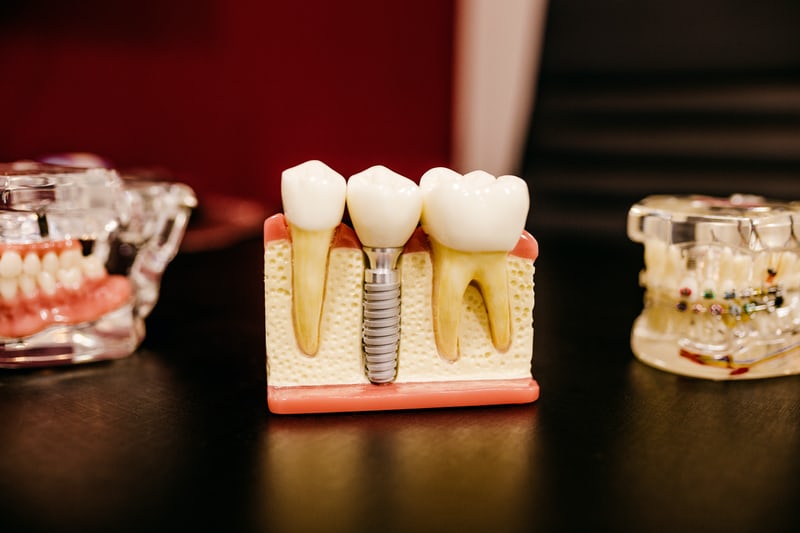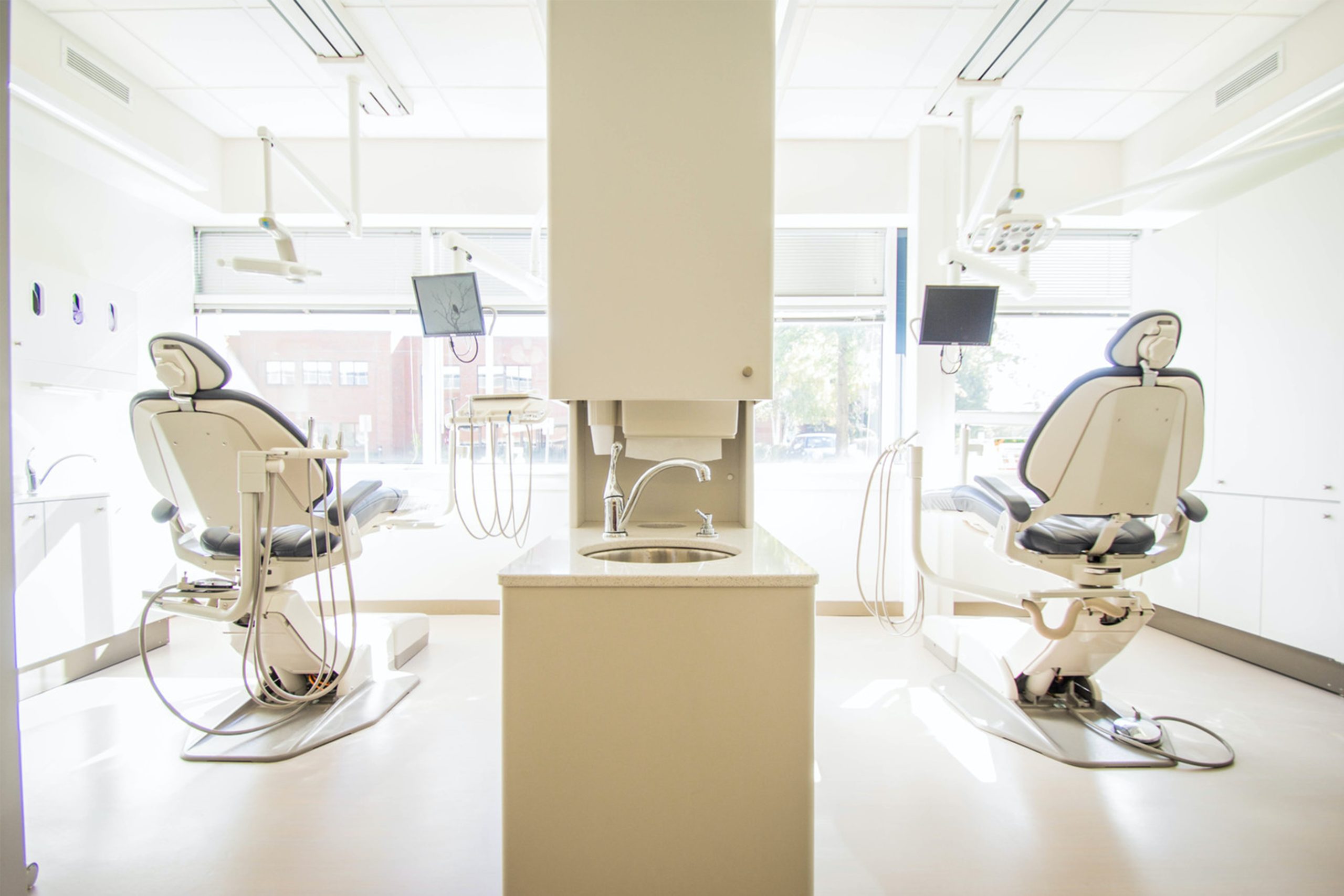It always amazes me when I hear someone say, “I don’t have time for my regular dental check-ups,” or “It’s just not a priority now.” Have you ever said this? These statements make me realize that many people don’t know that oral health is key when it comes to healthy aging. As I got older, I never felt more strongly about the importance of comprehensive dental care. I want to change your mind if you’ve ever overlooked those regular dental check-ups and the dentist’s treatment plan.
First, I want to say that it’s not easy. Finding a good biological dentist (sometimes called a holistic dentist) is important. This specially-trained type of dentist offers a more natural approach to dental issues and considers materials and treatments that promote whole-body wellness. The right dentist can make all the difference in the world when it comes to your long-term health.
Why Oral Health is So Important
The mouth is the entrance to your body and plays an essential role in your health. For example, gum disease, an infectious inflammatory condition caused by bacteria growing on the enamel of teeth, can last for decades and put an enormous strain on the immune system. This is one reason why professional dental cleaning is recommended every six months. Many people who want a strong immune system probably don’t ever think about this. And in today’s world, the immune system is everything!
If your immune system is focusing its attention on your mouth, it isn’t fully available to other parts of your body, but those other parts may need immune support. A University of Pennsylvania study found that the bacteria that causes gum disease can disarm the immune system.1 This is a problem since nearly 50% of all U.S. adults over age 30 and 70% of U.S. adults over age 65 have some form of gum disease.2 Wow. That’s mind-blowing. Could this be why so many people have difficulty overcoming cold and flu viruses?
Poor Oral Health is Connected to Disease
Most people have heard about the connection between poor dental health and heart disease. However, dental problems can affect nearly every system in the body. Dr. Reinhard Voll, a German physician, estimated that nearly 80% of all illnesses are related entirely or partially to problems in the mouth.3 In fact, the presence of periodontal disease is moderately associated with the risk of developing other problems, including infectious eye diseases.4 A growing body of evidence has linked poor oral health to several chronic diseases, including diabetes, heart disease, and stroke.5
Dental Conditions May be Linked to Health Problems
A healthy mouth is clean (free from excess bacteria), functional, devoid of mercury fillings, metal crowns, and root canals, and one that has healthy tissues (gums, cheeks, tongue). Implants, which are popular today and necessary in some cases, require careful consideration of the patient’s health issues. Here is a list of potentially problematic dental conditions:
AMALGAMS
Amalgams are also called “silver” fillings. These fillings contain a significant amount of mercury, which is the most toxic metal on the planet. Despite the “silver filling” controversy, mercury is not safe and escapes from fillings (especially when chewing). Mercury can then become widely distributed throughout the body, where it stays for a long time, even if the fillings are replaced. Mercury tends to affect the nervous system. The International Academy of Oral Medicine and Toxicology (IAOMT) has a protocol for the safe removal of these fillings. It is best to remove silver fillings when you are healthy.
Amalgam fillings are associated with diseases of the nervous system, heart arrhythmias, psychological disturbances (including depression), chronic headaches, immune system problems, thyroid issues, vision, and skin problems. There is plenty of science showing the problems with amalgam fillings.
ROOT CANALS
Root canals can be a cause of poor health. You need a root canal when a tooth is dead and infected. So, the dentist removes the roots in the canals of the tooth in an attempt to try to save it. But it’s still a dead tooth with millions of tubules that can be a breeding ground for powerful anaerobic bacteria. If you have root canals, be sure your dentist monitors these regularly for possible infections. Not everyone can opt for extraction since it depends on personal health and the location of the tooth.
CROWNS
A person needs a crown in cases where a tooth has decayed so much that it would require a large filling to repair it. Specialized dental laboratories make crowns to fit over a tooth. Dentists sometimes use crowns over a baby tooth that was never lost to provide better support and function. Crowns are generally porcelain-fused-to-metal (or PFM) and contain other metals, including nickel, another potentially problematic metal. Many people have nickel allergies. Discuss a non-metallic option like ceramic or zirconia with your dentist if you need a crown. Crowns must fit well and perfectly to prevent future problems.
CAVITATIONS
A cavitation is a hole in the bone, usually in an area where a tooth was previously extracted (and the bone did not fill in properly). This is an area of infection, inflammation, or necrosis (dead tissue) in the jawbone. The most common site for cavitations is in the area of the wisdom teeth. Bacteria can flourish in these sites. While not commonly recognized by conventional dentists, cavitations can be a source of low-level or high-level stress on the entire body.
IMPLANTS
A tooth implant is a replacement for a missing tooth. A specialized dentist places titanium or zirconia rods into the jawbone where a tooth is missing. After the bone solidifies, the dentist places a crown on the part of the rod that protrudes from the gum. Are they safe? It depends on the health of the patient since these sites can also be breeding grounds for bacteria. Implants may not be a good choice for those who grind and clench (bruxism). Most importantly, the dentist must carefully assess your bone density since not all people are candidates for implants.

What Can You Do to Improve Your Oral Health?
Prevention is important, which is why hygiene is essential to good oral health. This is where it all begins. Keep these tips in mind for a healthy mouth:
- Brush and floss at least twice daily (or after each meal). An oral water irrigator after brushing is a great way to remove all food from between the teeth. Some dentists now recommend flossing (or using an oral irrigator) before brushing.
- Visit your dentist for a professional cleaning twice yearly (or more if needed). I find that going three times a year makes each visit gentler and very effective. Cleanings are inexpensive, even if you don’t have insurance.
- Certain X-rays can show emerging problems that you may not even feel. Be sure to ask for a panoramic X-ray every few years. Many dentists now offer 3D dental CT scans, which can help better assess your whole mouth. One dentist overlooked an infection I had brewing (showing clearly on the x-ray), and I subsequently lost the tooth (2 years later). Had I known, I may have had time to correct the problem. It bothered me to know my body was fighting for this long.
- Try “oil pulling” a few times a week before bed and after brushing and flossing. To do this, swish one teaspoon of coconut oil around your mouth for 10 minutes. This can help decrease the bacteria and freshen your mouth before sleep. When you’ve completed 10 minutes, spit the oil into a cup or napkin and place it in the trash (avoid spitting it into the sink as it can clog your drain). Your mouth will feel moist and refreshed in the morning!
- Eat a healthy, whole-food diet. Your nutrition status is important for excellent oral health.
- Reduce or eliminate sugar in your diet. If you choose to enjoy sugary foods, brush your teeth immediately after eating them.
I love learning about dental health. Much of what I learned over the past 10 years were things that completely blew my mind. I have also witnessed this as part of my job at Sanoviv Medical Institute, an integrative hospital, where dental health is a major part of a patient’s overall assessment. If you want to read a good book, I suggest Whole Body Dentistry by Mark Breiner, DDS. You’ll learn from all the “dental detective stories” throughout the book. After reading that book, I went on to read several more about the connection between dental health and overall health. There were SO many things I didn’t know!
Also, if you want to age well and eat certain foods well into your older years, taking care of your oral health and doing everything possible to prevent tooth loss is crucial. Healthy tooth replacements are not always possible. Remember, teeth are an essential part of your digestive system and the structure of your face. Please don’t skip your regular dental check-ups!
For help choosing a good dentist, check out the IAOMT website. They also provide abundant resources.

LEAVE A COMMENT
Comments